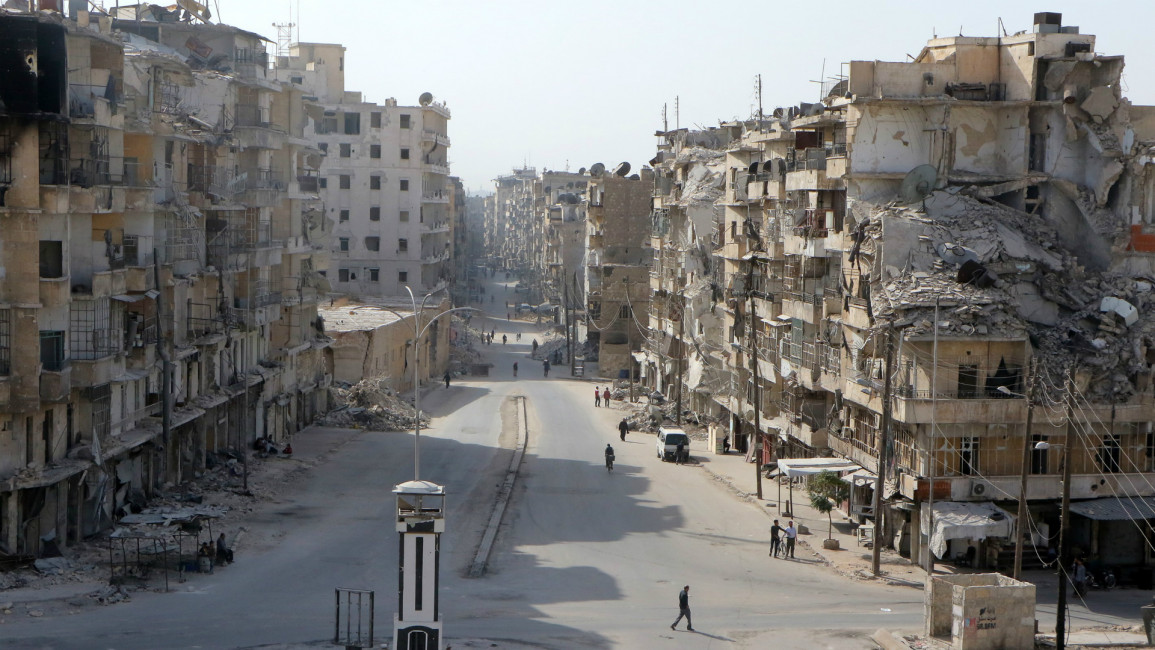US pushes for Syria peace plan following failed negotiations
It comes after high-level talks with Russia and the country's neighbours on Syria in Switzerland failed to conclude with a successful road map for peace.
Kerry was due to fly to London to brief Washington's European allies after "brainstorming" talks in Lausanne with the main players in Syria's bloody five-year-old conflict.
The Swiss meeting did not produce a concrete plan to restore the truce that collapsed last month amid bitter recriminations between Washington and Moscow and new fighting on the ground.
New plan
Kerry has insisted the new, leaner contact group had come up with some plausible ideas that would be fleshed out in the coming days and might lead to a new, stronger ceasefire.
"The way it wrapped up was to have several ideas that need to be quickly followed up," he said after talks with Russia, Iran, Iraq, Qatar, Jordan, Saudi Arabia, Egypt and Turkey.
"The next contact on trying to follow up on this is going to be immediately, because this is urgent, and we're not letting any grass grow under our feet."
But he said it was too early to reveal what the ideas were, and that high-level contacts - but not a ministerial-level meeting - would continue on Monday to develop them.
He was expected, however, to raise the issues with the UK's Foreign Minister Boris Johnson and senior European colleagues, after flying to London later on Sunday.
The UK, France, Germany and Italy are members of the International Syria Support Group and have met before with other countries interested in resolving the Syrian crisis.
But US officials now say the full group is too unwieldy to make rapid decisions, and that Saturday's Lausanne meeting was more productive for being focused on the main regional players.
The US envoy's tone was upbeat, but diplomats from all sides warned against hopes of a rapid ceasefire.
Divided city
Away from the talks, Moscow's actions showed no sign that it might be softening its strong support for Syrian President Bashar al-Assad and his campaign against US-backed rebels.
And in Aleppo, Assad's Russian-backed government forces intensified their bombardment of the rebel-held east of the city, further damaging any prospect of a renewed ceasefire.
Kerry and Russian Foreign Minister Sergei Lavrov, once joint sponsors of international peace efforts, met ahead of the broader talks, but US officials insisted that their "bilateral track" remained dead.
Lavrov joined Kerry in welcoming the idea of bringing other powers into the mix saying, "we must prolong our contacts over the coming days".
President Barack Obama has been adamant that US forces will not become caught up in the war and Kerry was hoping that talks with Russia and regional powers may yield new ideas.
The talks come as Moscow faces growing criticism over its backing for Assad's assault in divided Aleppo.
Air raids hit rebel-held parts of Aleppo again Saturday, according to the Syrian Observatory for Human Rights.


![President Pezeshkian has denounced Israel's attacks on Lebanon [Getty]](/sites/default/files/styles/image_684x385/public/2173482924.jpeg?h=a5f2f23a&itok=q3evVtko)



 Follow the Middle East's top stories in English at The New Arab on Google News
Follow the Middle East's top stories in English at The New Arab on Google News


